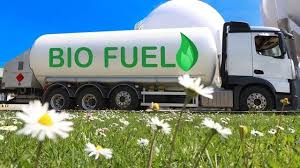The Government of Ghana says it is developing a comprehensive biofuel policy to guide strategies and initiatives to unlock the country’s potential in the renewable energy market.
A policy drafting team is wrapping up stakeholder consultations across the northern and middle belt regions, which will pave the way for subsequent processes to finalise the policy by the end of 2025.
Mr Seth Mahu, Director of Renewable Energy, Ministry of Energy and Green Transition, told the Ghana News Agency in Accra that finalising the regulatory framework would open up opportunities for biofuel use in sectors such as aviation, clean cooking, and exports.
He noted that Ghana had already made provisions for a 10 per cent biofuel blend with conventional fuel in the aviation sector to reduce carbon emissions, but the opportunity had not been fully realised.
Biofuels are renewable fuels produced from organic feedstocks such as cassava, sugarcane, jatropha, and agricultural residues.
Mr. Mahu said, “We are not even producing one per cent of that target. If we had focused on the sector, the country could have earned a conservative estimate of over GHS five billion annually—just from blending 10 per cent biofuel with conventional fuel,” he said.
On clean cooking, he hinted the potential of converting biofuels into bioethanol to serve as a sustainable energy source for households and commercial kitchens.
This, the Director said, would reduce reliance on solid biomass, help preserve forests, promote cleaner air, and cut emissions.
He emphasised that the biofuel sector held immense promise for diversifying Ghana’s energy mix, fostering rural development, creating employment, and advancing climate action.
Mr Mahu said the establishment of the Renewable Energy Authority would play a pivotal role in promoting these opportunities and facilitating the country’s green economic transition.
Addressing concerns about the competition between biofuel feedstocks and food security, he said Ghana had sufficient arable land, and that collaboration with institutions like the Ministry of Food and Agriculture could improve crop productivity.
“We have enough land, but we are inefficient in production. There are lands suitable for oil palm cultivation. We have abundant water resources. However, our agricultural sector is largely unmechanised, with farming dependent on rain-fed cycles. Once the rains stop, farming halts,” he explained.
“With commercial-scale agriculture, we can use the same acreage more efficiently to produce enough for both food and biofuel needs,” he added.
GNA



